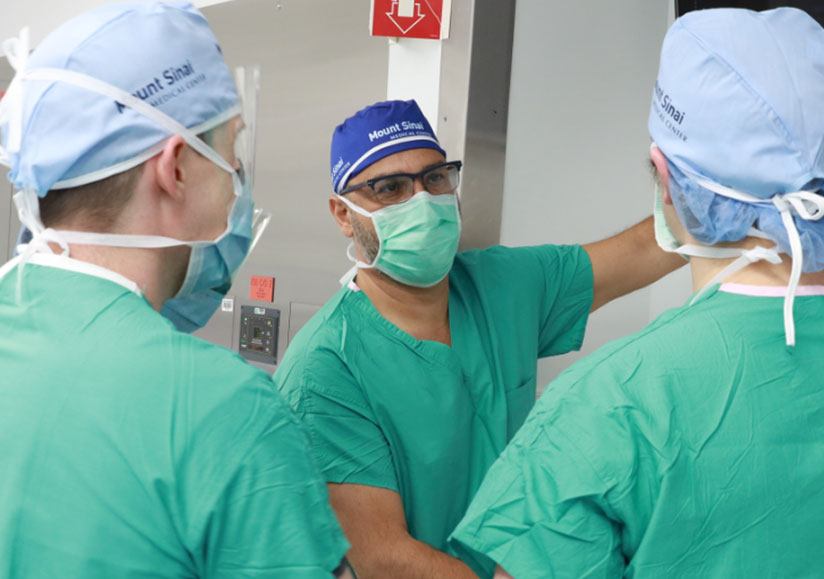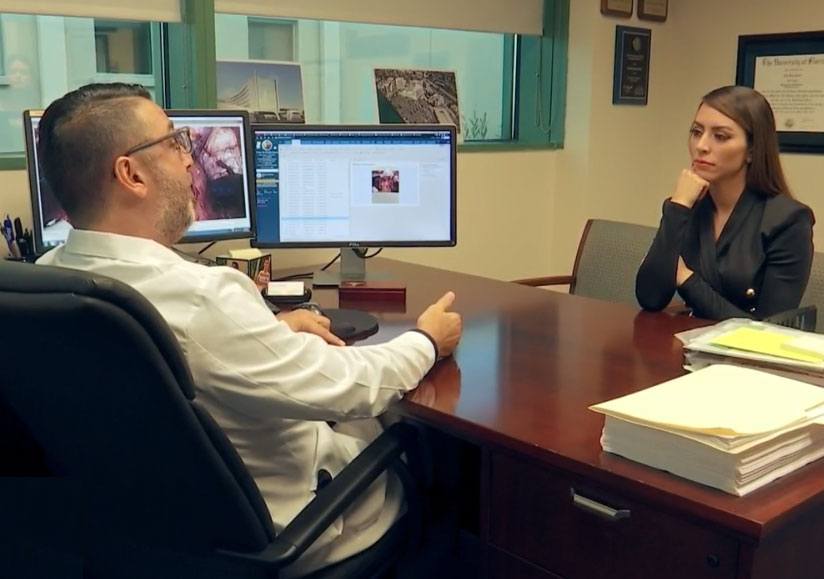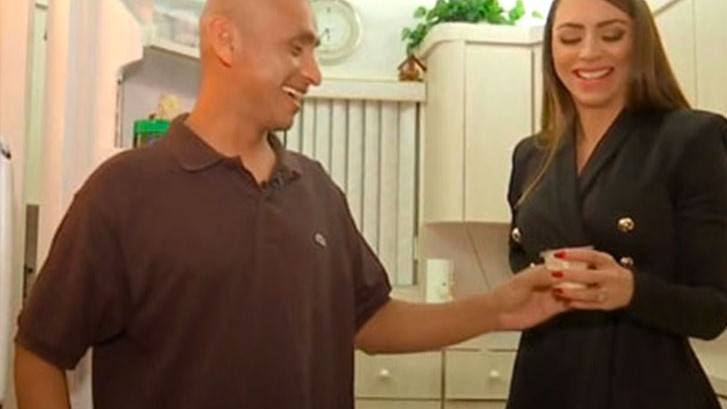Like many immigrants, Víctor Bonilla came to the U.S. from Honduras with hopes for a better education and a brighter future. But his world took a turn when he began experiencing excruciating abdominal pain.
“It was a horrendous pain. I couldn’t fight off the tears and sense of desperation to know what was wrong with me,” says Bonilla.
Following several visits to area hospitals, Bonilla’s diagnosis was inconclusive, suggesting bladder discomfort as the possible source. But the pain was so unbearable that it led Bonilla to the emergency center at Mount Sinai. At 43 and without medical insurance, Bonilla was diagnosed with stage 3 stomach cancer and was given six months to live if he didn’t get treated immediately.
“I was heartbroken. I couldn’t see my mother and sister break down. But within me, I found strength and unwavering faith in God,” says Bonilla. His family had already suffered great losses due to stomach cancer, as his sister died at age 31, as well as two of his grandparents.
“Gastric cancer is more prominent worldwide and is the second highest terminal cancer. Hispanic men, especially from Central America, are more vulnerable due to poor diet and a common bacteria called Helicobacter pylori, or H. pylori, which can cause an infection in the stomach that may lead to ulcers and raise the risk of stomach cancer,” says Kfir Ben-David, MD, chief of gastroesophageal surgery at Mount Sinai.
Though his cancer was at an advanced stage covering most of his stomach, Bonilla trusted his life under the care of Dr. Ben-David, who along with a multidisciplinary gastrointestinal board of medical experts curated a personalized treatment plan that included a gastrectomy. The outcome was lifesaving. Bonilla is now cancer-free and continues undergoing chemotherapy treatment at Mount Sinai to prevent further spread, along with a special diet.
“It’s vital to acknowledge symptoms like abdominal pain or burning, as well as weight loss and reflux. An endoscopy can help provide an early detection. A balanced diet high in fibers, vegetables and fruits may help decrease the chances for stomach cancer,” says Dr. Ben-David.
The CDC estimates that approximately two-thirds of the world’s population harbors H. pylori, with infection rates much higher in underdeveloped countries. While stomach cancer is becoming increasingly common in younger patients, in Bonilla’s case, genetics was also a factor.
Bonilla is eternally grateful to Dr. Ben-David and the caring team of medical experts who continue to be by his side through his healing journey. Mount Sinai also covered Bonilla’s medical costs and provided the lifesaving high-quality care he needed, regardless of being uninsured and limited in financial resources. It’s through the kind support of our generous donors that Mount Sinai continues to live by its mission to provide compassionate care to all.
“I owe my life to Mount Sinai. I got a second chance at life,” says Bonilla, who is now eager to finish his treatments and get back to work to provide for his family.




